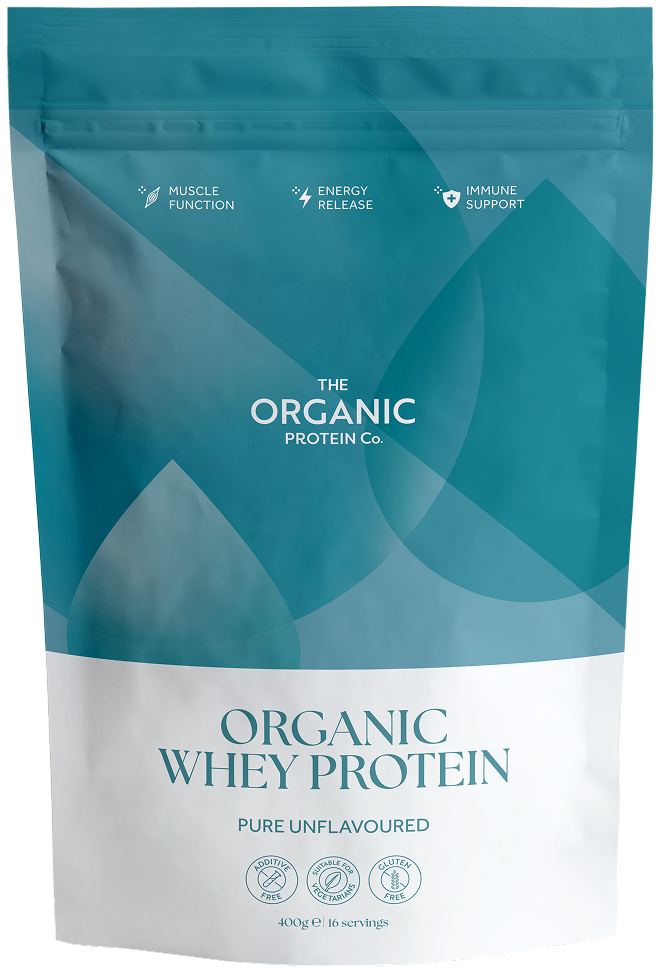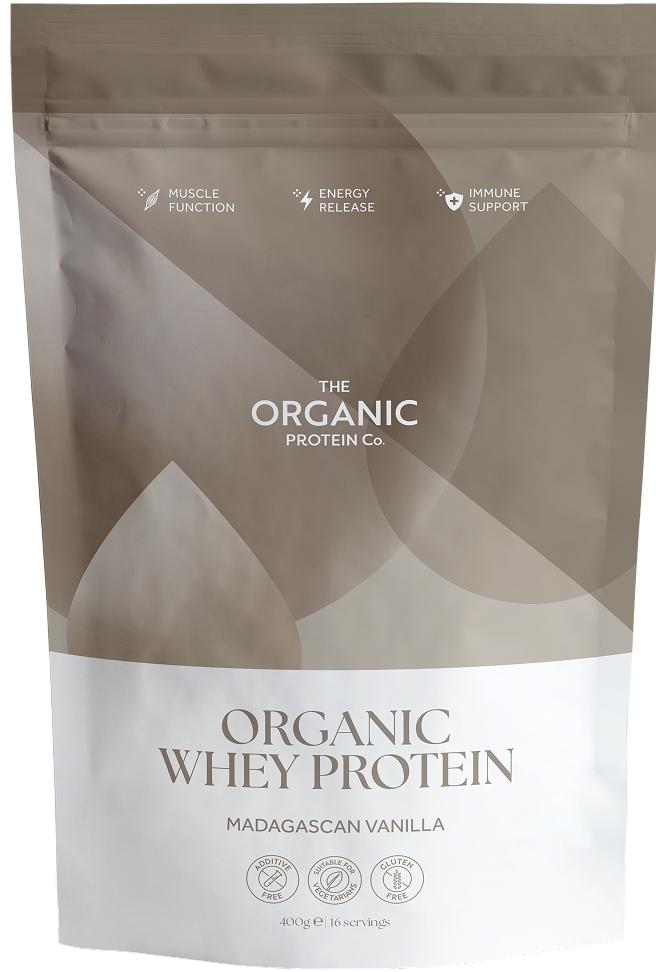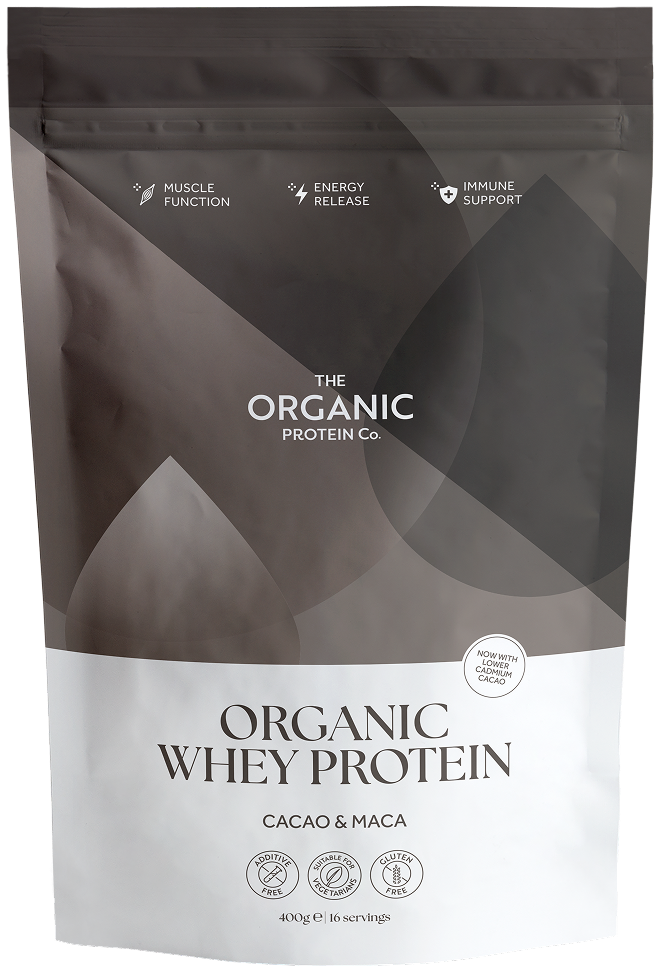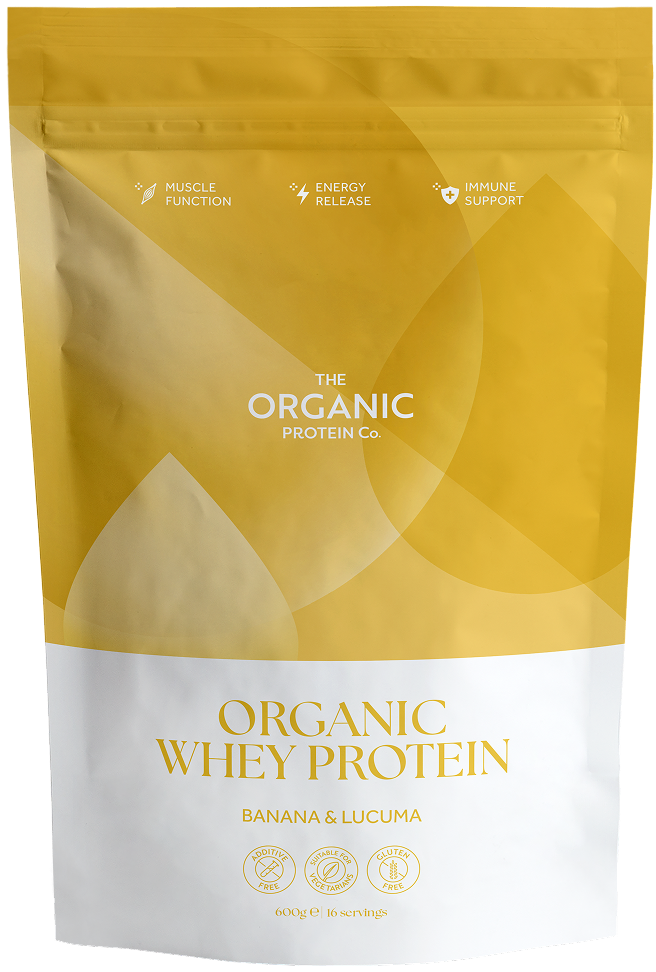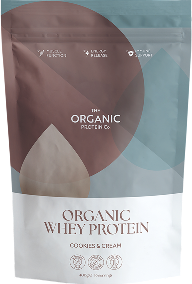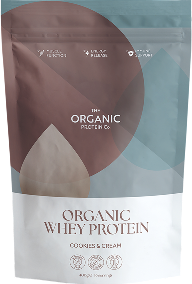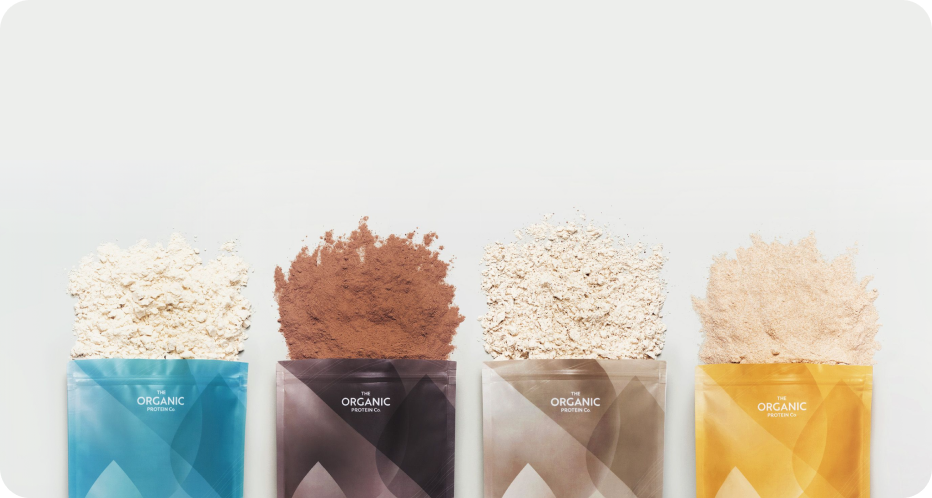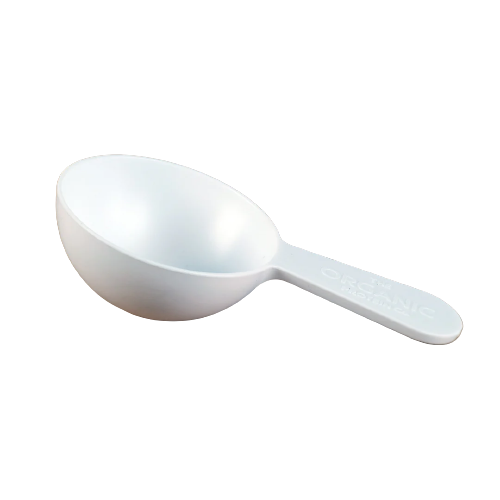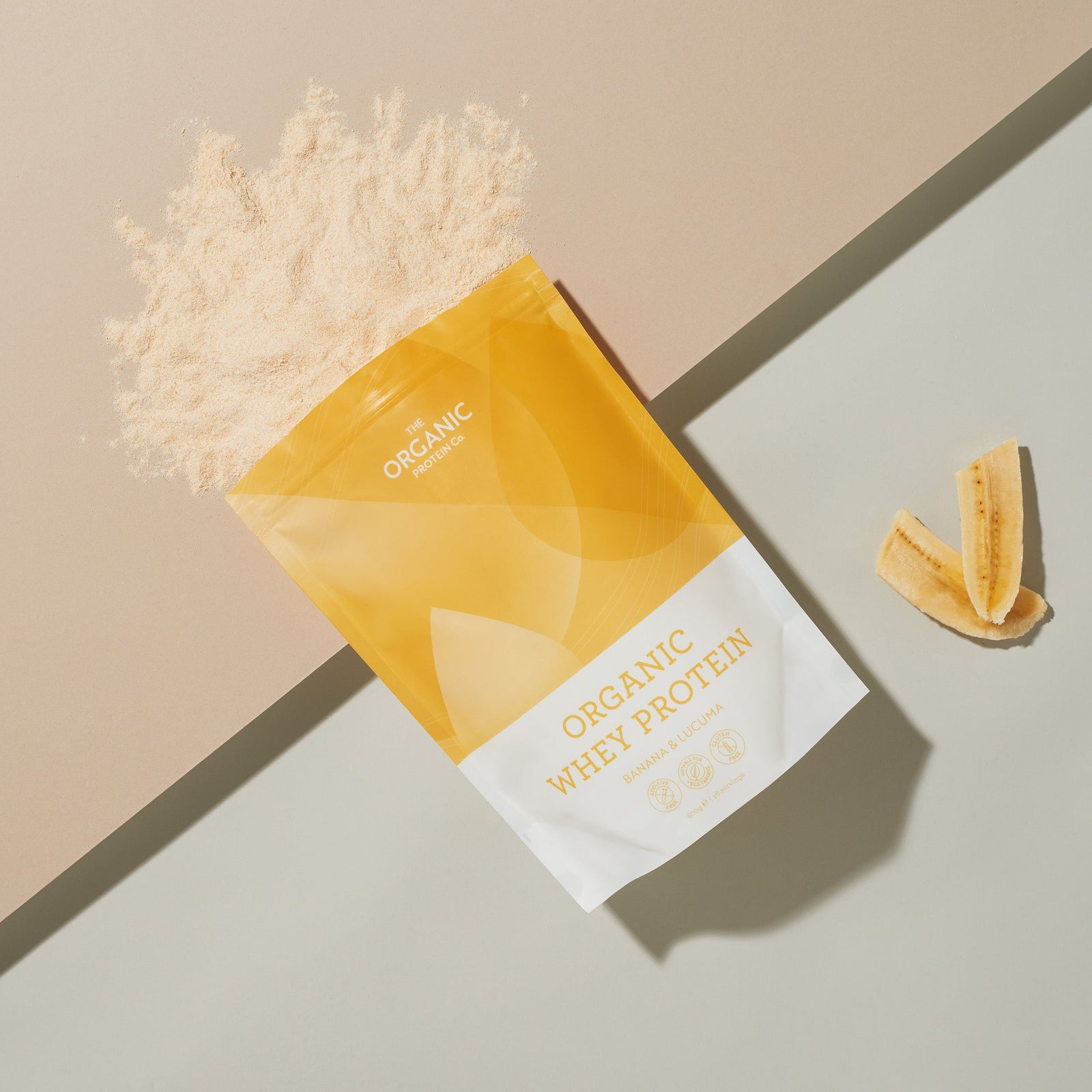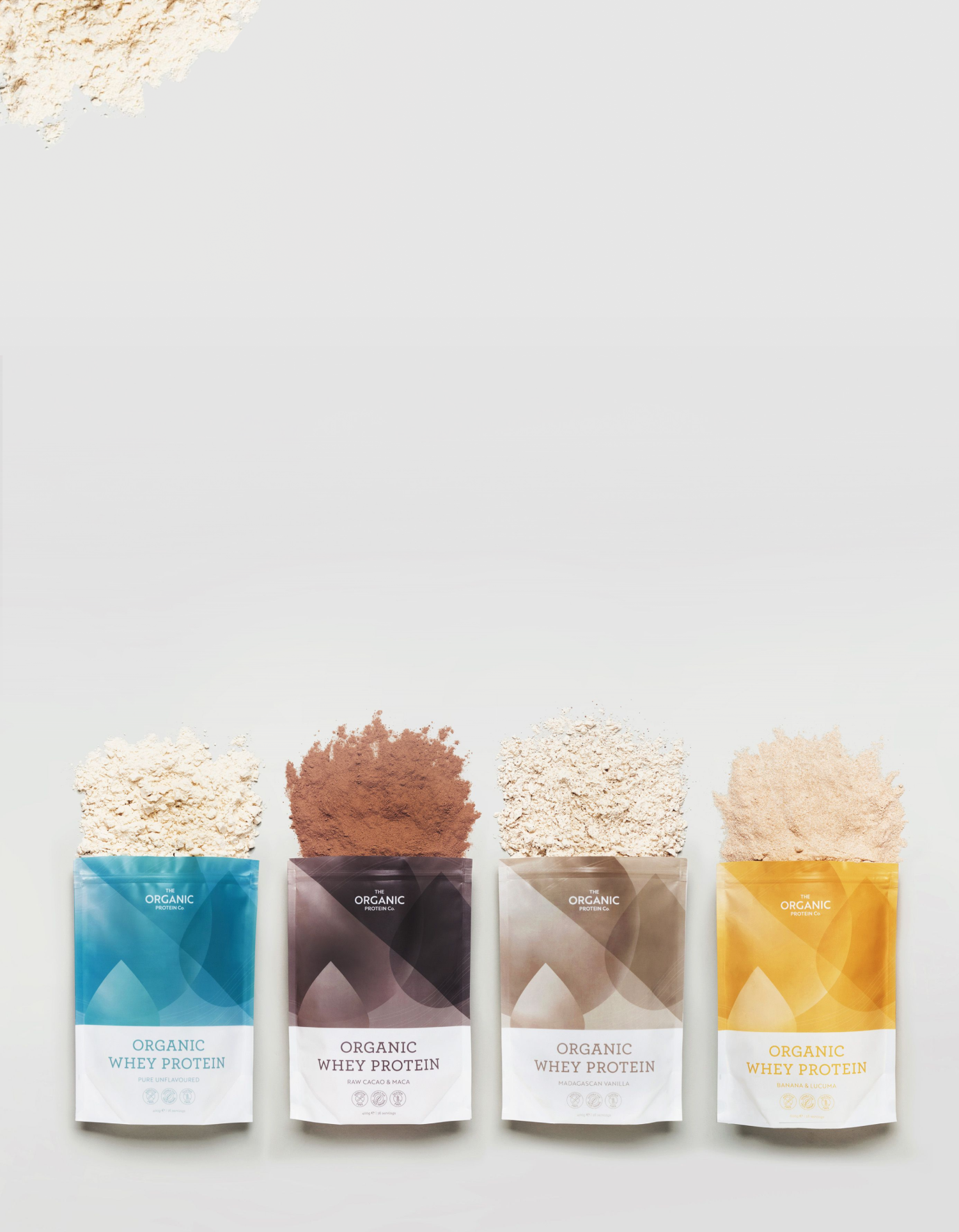Avoiding overly processed or unnatural nutrition or protein powders is a priority for many of us. But do you ever feel like food labels have been written in another language?
If natural ingredients and additive-free protein blends are what you’re after, this post can help you understand what to look out for and how to find the best protein powder for your needs.
What makes a protein powder ‘natural’?
When we say a protein powder is ‘natural’, we’re primarily focusing on products that steer clear of artificial additives. This means the ingredients come from ‘clean’, whole food sources, without chemical alterations typically used to enhance flavour, colour, or shelf-life – or, indeed, as a means of extracting the protein in the first place as is typically the case for plant-based protein powders containing 70% protein or more.
Why are natural options so important?
Avoiding these artificial flavours, colours, and preservatives is becoming increasingly important, for both our health and our enjoyment of the foods we eat.
Research is ongoing, but some of the main findings about artificial ingredients so far include:
- A study by the European Research Council implicates ultra-processed foods in numerous chronic inflammatory diseases such as inflammatory bowel diseases and metabolic syndrome. (1,2)
- There are a number of food colours which were found to have possible links with hyperactivity in children, such as sunset yellow FCF (E110) and allura red (E129). (3)
- Other studies have shown associations between high emulsifier intake and cardiovascular disease. (4)
While these artificial additives have to be approved for use by the Food Standards Agency and are therefore deemed safe to consume, there are still growing concerns about the long-term effects on our bodies and our health - particularly in ultra-processed foods.

The benefits of natural ingredients
Choosing a naturally made and ethically sourced protein powder offers a whole host of benefits, such as:
- Healthier composition: Natural protein powders are free from artificial additives and avoid chemical extraction, providing a purer nutritional profile that's better for your health.
- Additional nutrients: They often contain naturally occurring beneficial nutrients like antioxidants, vitamins and minerals that support overall health.
- Ethical production: Choosing natural protein powders is no guarantee of higher ethical standards by any means, so make sure you choose organic to ensure higher welfare standards, avoid GMOs and artificial pesticides, as well as supporting greater wildlife diversity and healthier soil.
A disclaimer about artificial vs. natural ingredients
As we’ve mentioned, research on the impact of artificial ingredients and UPFs is ongoing. While we at The Organic Protein Co. believe that additive-free protein powders made without chemical extraction are best for your health and overall wellbeing, it’s important to take your own view on the subject.
We are not here to tell you what to think, but rather to help you understand what to look out for in a sea of protein supplements, and aid you in finding a more natural alternative. Ultimately, you know what’s right for you!
What makes the best natural protein powder?
Reading the label on your protein powder
When you’re looking for the best protein powders, reading labels can tell you a lot of the story. Whether it’s whey protein, pea protein or a vegan blend, the ability to identify more natural protein powders ensures your choice aligns with your health and wellness goals. Here’s how to do it effectively:
Start with the ingredient list
- Look for short, straightforward, and clear lists. Natural protein powders typically feature fewer ingredients, focusing on clean sources such as organic whey or hemp protein, for example.
- Avoid options with long lists of unrecognisable ingredients, which often indicate the presence of artificial additives.

Check for keywords
- Words like "organic," "non-GMO," and "no artificial additives" are indicators of natural protein powders. These terms suggest that the product is free from synthetic ingredients and genetically modified organisms.
- Be cautious of terms like “natural flavours” as they can sometimes mask artificial components. Instead, look for specific, wholefood flavour sources such as cacao or real ground vanilla.
Look for certifications and standards
- The presence of organic certification is a great way to identify more natural protein powders. This is particularly important for animal-derived products, such as whey, casein, or egg white protein powder, but can also be relevant for plant-based proteins like soy, which are common GMO crops.
- Look for logos and certifications from trusted bodies like The Organic Food Federation and the Soil Association in the UK.

Transparency and brand ethics
- How easily accessible this information is can tell you a lot about a protein powder company as a customer.
- Companies committed to natural and ethical practices often provide detailed information about their sourcing and production processes.
Spotting hidden artificial ingredients
Part of the challenge with finding a natural protein powder is recognising the ingredients to avoid. It’s often said that you should avoid any ingredients you wouldn’t find in your home cupboard - but that doesn’t always apply to protein powders.
Below are some of the most commonly added artificial ingredients in protein powders - the best ones will avoid these:
Thickeners and gums
- Xanthan gum - a gum derived from strains of the Xanthomonas campestris bacteria.
- Guar gum - a gum extracted from guar beans.
- Carrageenan - a gum extracted from red edible seaweeds.
Sweeteners
- Sucralose
- Aspartame
- Saccharin
- Acesulfame K
Emulsifiers
- Soya lecithin
- Sunflower lecithin
Hidden ingredients
- Sodium citrate - although this ingredient is rarely shown on labels, it’s commonly used as a processing aid in the manufacture of whey protein isolate.
Take a look at a natural protein powder label
Our organic whey protein powders are a great example of truly natural products, made without chemical extraction and with no artificial additives. Take a look at the label for our chocolate whey protein powder (Raw Cacao and Maca) below:

We are proud that our whey protein powders are made with 100% real ingredients. You’ll see that our ingredients list contains only organic whey protein concentrate blended with natural, wholefood ingredients to give it its chocolatey flavours; that’s raw organic cacao powder, unrefined coconut sugar, raw organic maca powder, and Himalayan pink salt.
And if you’re looking for a whey protein with even fewer ingredients, look no further than our Pure Unflavoured option which includes organic whey protein powder and nothing more:

Helping you make an informed decision
The best protein powder looks different for all of us, depending on our health goals, dietary needs, and personal tastes. Beyond the quality of the protein source, the essential amino acid profile and the bioavailability (all covered in our best protein powder for health and wellbeing guide), the presence of artificial ingredients can be a deciding factor in your decision.
With this guide, you’re armed with the best information to choose a protein powder that matches your priorities. Seek out clean ingredients, transparent labels, and organic certification to help guide your choice.

